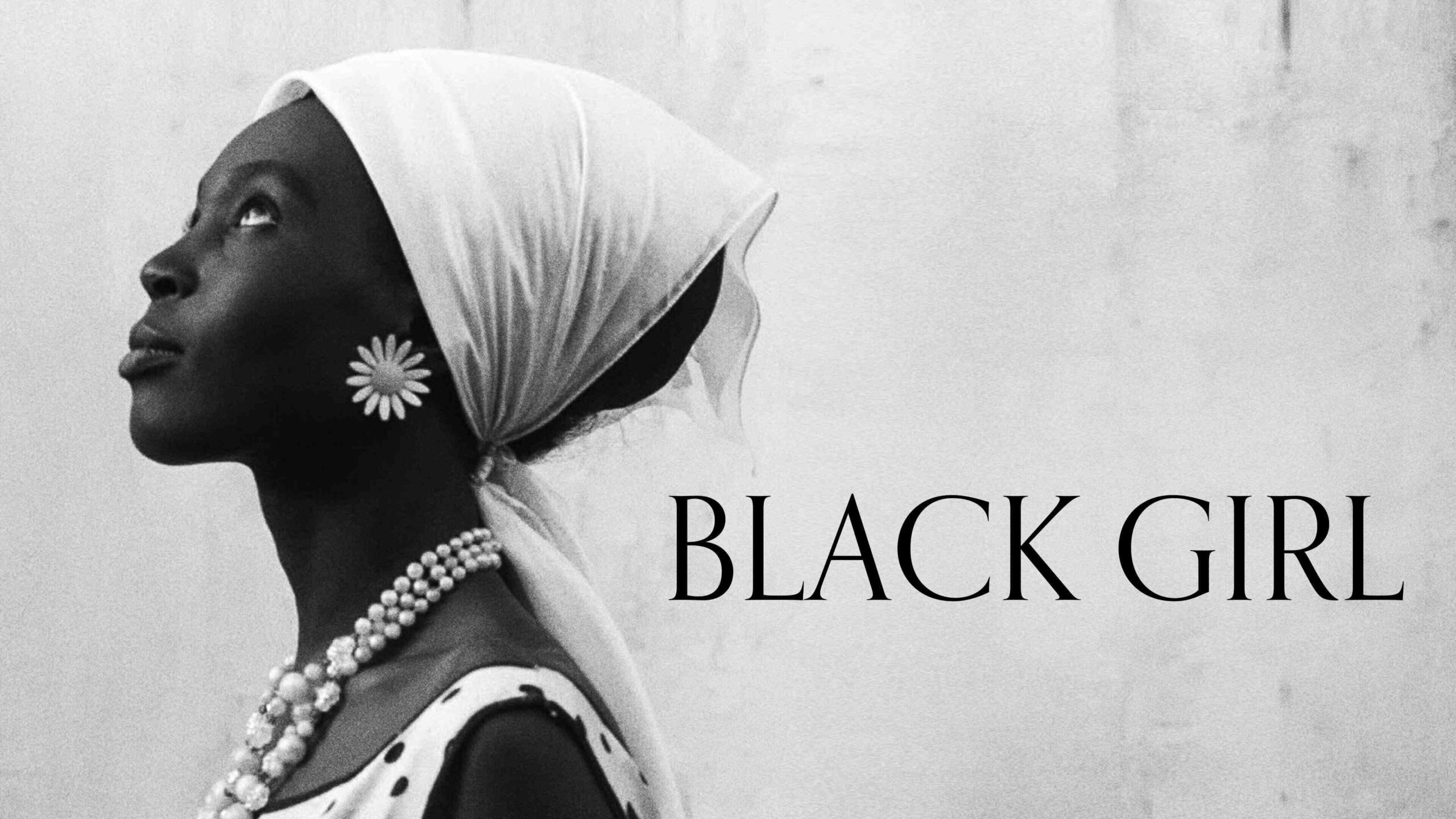by Ifeoluwa Olutayo
The conversation around the liberation of the hearts and minds of all (neo)colonised peoples has taken a lot of forms, the trajectory and perception of progress weaving and changing from the 20th century into the new millennium. It is therefore to be expected that the conversation will extend into a form as potent as cinema and this is what we find with Ousmane Sembene’s seminal work, Black Girl (La noire de…,1966).
Black Girl was Ousmane’s debut feature and one of the first African films to receive considerable international attention. It follows Diouana (Mbissine Thérèse Diop), a young woman who moves from Dakar, Senegal at the request of her employers to continue her previously held job as a governess in Antibes, France. She moves with the belief that she would, in the course of her duties, be integrated into this modern, cosmopolitan society in 60s France.
The problem is this; upon arrival, she realises that she is to be a maid and shuttered indoors.
Photographed in resplendent black and white, it holds a mirror to the dehumanizing treatment of the African peoples during the euro-occupation (colonization) and its resultant effects on the African consciousness. It opens up a conversation around the self-hate cultivated by this treatment and the resultant resistance that occurred in the struggle for African liberation, touching on racism, exploitation and sub-human perception.
Diouana sees the move as a way to realize her dreams and ambitions, but her employer, the madame, sees her as a maid and an object to display to the family’s friends in Paris, a sample of this famed black skin for exhibition, highlighting the entrenched racism of the French people. She increasingly becomes disillusioned as she feels hard done, but she is in a new country, surrounded by strangers and she feels increasingly isolated from the world that she knows and the man she loves.
We see through the intercut sequences of Black Girl that there is much hope for a better life when she leaves Dakar, even with her lover’s reticence about the whole affair. She resists, as she will grow to do in France, the idea of being tied down at the expense of the dreams and possible opportunities that await her in France, especially under a madame who has been kind and decent to her while she worked for the family in Dakar.
We are also made to engage with themes surrounding the plundering of culture by the colonizer. Diouana on her first day working for the madame in Dakar, presents her with a mask, which is then added to a vast collection of masks collected by this couple, alluding to the white gaze they inhabit, one that views the locals as a source of collectables and in the case of Diouana, a collectable herself when the plot moves to France.
These masks which serve as connections to ancestry and a collective consciousness for the people who crafted them, are just items in a collection for the family, one to be displayed for friends, as proof of their very curious engagement with the “backward” people in the colonies, a fact that even extends to Diouana’s display for friends at a dinner party, where one of them kisses her on the cheek because he had never kissed a black woman before.
Her gifted mask is the only one adorning the walls of the family home in Antibes, and as she walks past it every day in servitude, it serves as a reminder of the alienation she feels, from her family and her partner back in Dakar. The power imbalance is a marked reference to the continuing effects of colonialism, even in post-independence Senegal.
As time passes, we see Diouana move from wanting the freedoms afforded a governess to explore and live in France, to wanting freedom from the work and oppression of her madame.
She rebels directly, choosing to separate herself from the role of a maid that they have forcibly and deceitfully put on her. She separates herself from the remuneration that she deserves, rejecting it when she realizes that it’s too late to assuage any concerns about the role that she was deceived into travelling to take. She separates the mask from the wall and the madame (a tussle), a symbol of the reclaiming of her body and her heritage from this occupier. She separates herself from the narrative of a happy and fulfilled life in France when, due to her inability to write a reply to her mother’s letter pleading for her not to forget the family back in Dakar, her employer decides to draft a letter on behalf of her, imposing their view of her on the development of her sense of Self. Through this act, they seek to give her a Self. Her staunch rejection symbolically points to the defiant resistance found in the colonies in the quest for National liberation and the growing need to search for an identity outside of what the colonizer left behind in their structures, in their art and in the perception of Africans they planted in the minds of the colonized.
When she finally takes up the pivotal act of separation, it is with the intent to force the white family to send what they have claimed from her and her people back and it rings clear in the context of all the thematic leanings of this landmark film.
When the return of the mask and person is complete, the family rejects anything but their person and artefact, a clear pointer to the need for real independence from these imperial powers and as the film ends, we see a child in the mask (itself a symbol of unity and identity), chasing after the husband of the madame who has made it his responsibility to return her and her luggage. The shadows of colonization, exploitation and abuse will always cast a shadow, and in this scene, Sembene shifts the burden of that shadow onto the colonizer, whatever their warped ideas of the good effects of their occupation. The travel and return to home also opens up a dialogue about repatriation, one that has been had in different forms in the consequent decades and seems to be one the colonizers refuse to engage in (in Nigeria’s case, read the fallen British Empire), given that they still actively display our artefacts and possessions in their museums and profit off of its use.
Sembene’s debut is an engaging piece of cinema, touching on and critiquing the continuing effects of colonization on the hearts and minds of the newly independent countries. Black Girl will continue to be a landmark film referenced in the now, as we battle the effects of a lack of disengagement from these colonial structures in the new raging forms of neo-colonialism.





